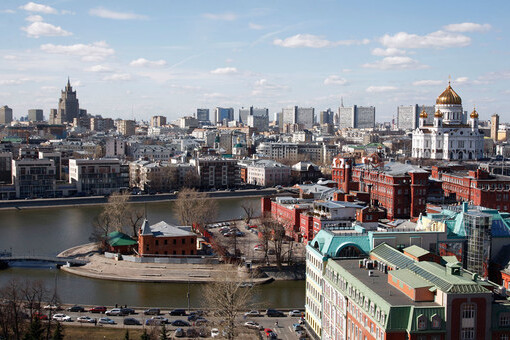The draft resolution, circulated by the United States and Albania, was supported by ten of the fifteen members of the Council, with Russia voting against it. Four members abstained, Brazil, China, Gabon and India.
The draft described the so-called referendums held by Russia in the four regions of Ukraine which Moscow now regards as sovereign territory – Luhansk, Donetsk, Kherson, and Zaporizhzhya – as illegal and an attempt to modify Ukraine’s internationally recognized borders.
Withdraw now
It called on all States, international organisations, and agencies not to recognize the Russian annexation declaration, and called on Russia to “immediately, completely and unconditionally withdraw all of its military forces” from Ukrainian territory.
Due to Russia’s veto, following a new procedure adopted in the UN General Assembly in April, the Assembly must now meet automatically within ten days for the 193-member body to scrutinize and comment on the vote. Any use of the veto by any of the Council’s five permanent members triggers a meeting.
On Thursday, UN Secretary-General António Guterres condemned the annexation plan as a violation of international law, warning that it marked a “dangerous escalation” in the seven-month war that began with Russia’s invasion of Ukraine on 24 February.
“The Charter is clear”, said the UN chief. “Any annexation of a State’s territory by another State resulting from the threat or use of force is a violation of the Principles of the UN Charter”.
Speaking before the vote, United States Ambassador Linda Thomas-Greenfield, said that the referendums were a “sham”, predetermined in Moscow, “held behind the barrel of Russian guns.”
Ambassador Linda Thomas-Greenfield of the United States addresses the UN Security Council meeting on Maintenance of peace and security of Ukraine.
Defending sacred principles: US
“We all have an interest in defending the sacred principles of sovereignty and territorial integrity, in defending peace in our modern world”, she told ambassadors.
“All of us understand the implications for our own borders, our own economies and our own countries, if these principles are tossed aside.
“It’s about our collective security, our collective responsibility to maintain international peace and security…This is what this body is here to do”, she said.
Ambassador Ambassador Vassily Nebenzia of the Russian Federation addresses the UN Security Council meeting on Maintenance of peace and security of Ukraine.
‘No turning back’: Russia
Responding for Russia, Ambassador Vasily Nebenzya, accused the drafters of the resolution of a “low grade provocation”, to force his country to use its veto.
“Such openly hostile actions on the part of the West, are a refusal to engage and cooperate within the Council, a refusal of practices and experience gained over many years.”
He said there had been “overwhelming” support from residents in the four regions that Russia now claims. “The residents of these regions do not want to return to Ukraine. They have made an informed and free choice, in favour of our country.”
He said that the outcome of the so-called referendums had been recognized by international observers, and now, after being endorsed by the Russian Parliament, and by presidential decrees, “there will be no turning back, as today’s draft resolution would try to impose.”
‘Urgent’ need to address fallout from Nord Stream pipeline leaks
Security Council members stayed in the chamber on Friday afternoon in New York, to discuss this week’s Nord Stream pipeline explosions, which the NATO military alliance and others, believe may be an act of sabotage.
Earlier in the day, President Putin accused the West of being responsible for damaging the Russian-built undersea natural gas pipelines – a charge strongly rejected by the United States and allies.
Briefing ambassadors on the UN’s behalf, the Assistant Secretary-General for Economic Development in the Department of Economic and Social Affairs (DESA), said that while the causes of the four leaks were being investigated, “it is equally urgent to address the consequences of these leaks.”
DESA’s Navid Hanif, said the UN was in no position to or confirm any of the reported details relating to the leaks detected on Monday. They Nord Steam 1 and 2 pipelines have been at the centre of the European energy supply crisis stemming from Russia’s February invasion, and neither are in operation pumping gas to European nations at this time.
Mr. Hanif said were three main impacts of the leaks, beginning with increased pressure on global energy markets.
“The incident can exacerbate the high price volatility on the energy markets in Europe and around the world”, he said, adding that the potential harm to the environment was another matter of concern.
Methane danger
The discharge of hundred of millions of cubic metres of gas, “would result in hundreds of thousands of tonnes of methane emissions”, he said, a gas which has “80 times the planet-warming potency of carbon dioxide”.
Finally, he said the pipeline explosions also made “manifestly clear” just how vulnerable critical energy infrastructure is, during such times of global crisis.
He said it showed just how important it was to move to a “clean, resilient, sustainable energy system, while ensuring universal access to affordable, reliable and sustainable energy for all.”
Finally, he told the Council that any attack on civilian infrastructure is unacceptable, and the incident must not be allowed to further increase tensions amid an escalating war.






